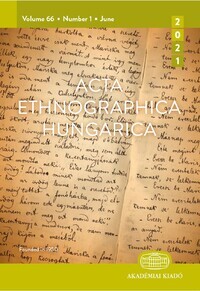Collections of Hungarian Folk Literature from the 19th Century and Their Canonisation
Collections of Hungarian Folk Literature from the 19th Century and Their Canonisation
Author(s): Anna SzakálSubject(s): Customs / Folklore, Hungarian Literature
Published by: Akadémiai Kiadó
Keywords: canonisation; Hungarian folktale; folklore collection; folklore collector
Summary/Abstract: In the first half of the present article, I review collections of folk literature which include 19th-century folktales, placing a special emphasis on trying to establish the extent to which these texts and the associated collectors have been studied, explored, and published.1 Next, I demonstrate which of the texts in question may be considered as part of the canon2 of folk literature that emerged in the latter third of the 19th century, which works and authors defined the approaches that were considered relevant, and what the selection criteria for canonisation were. Alongside the interpretative canon, I shall also attempt to record the textual canon and its changes – to capture the act by which certain texts were clearly excluded from the canon while others were included by the individuals who wished to create or modify the canon. I would also like to show how the image of 19th-century collectors and collections created in the second half of the century became gradually transformed during the 20th century, and how these changes affected the place the collections in question occupy in folkloristics in general.
Journal: Acta Ethnographica Hungarica
- Issue Year: 66/2021
- Issue No: 1
- Page Range: 5-30
- Page Count: 26
- Language: English

